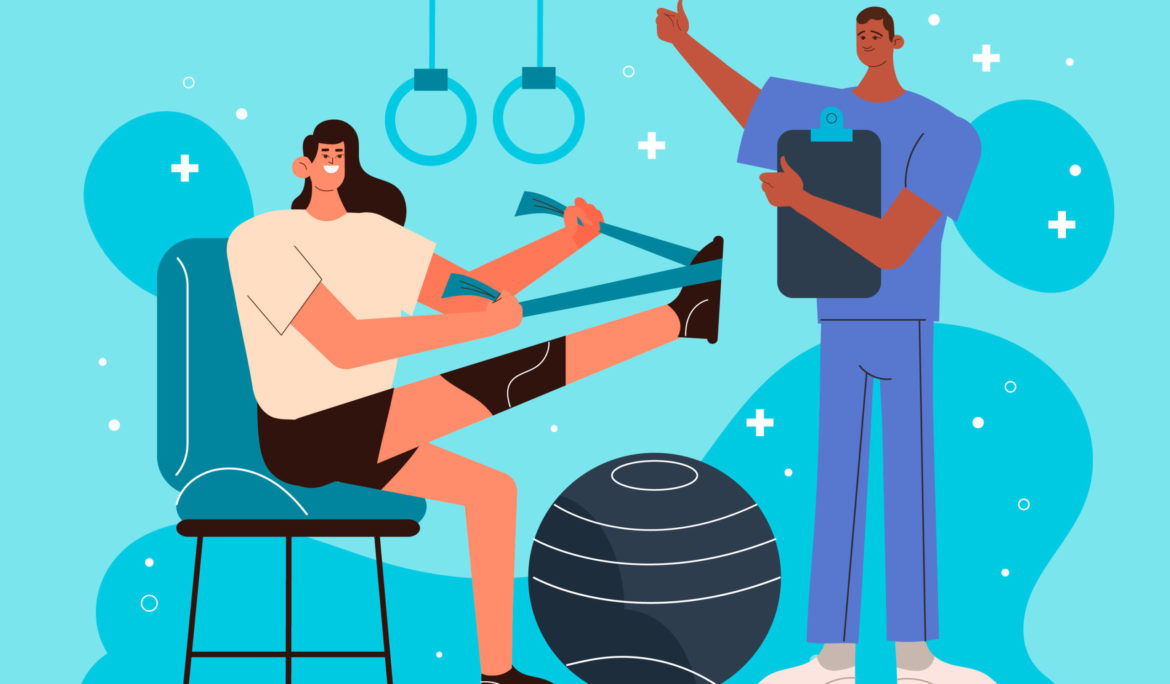Exercise and IVF: What You Need to Know


In vitro fertilization is a commonly used method of assisted reproductive technology, or ART. During in vitro fertilization (IVF), several eggs are collected from the intended mother and fertilized in a laboratory. To retrieve multiple eggs instead of a single one, medications are prescribed to stimulate the ovaries to release these eggs.


If you are undergoing or considering in vitro fertilization (IVF), you may be wondering about the role of exercise in the process. Is it safe? Will it have an impact on your chances of success? In this article, we will investigate the relationship between exercise and IVF and provide you with the necessary information.
It is important to note that exercise is generally considered safe and beneficial for most individuals. It has the potential to improve overall health, reduce stress, and boost mood. When it comes to IVF, there are several factors that need to be considered. The following paragraphs will express the impact of exercise on fertility and IVF.
| Before IVF | During IVF | After Embryo transfer |
|---|---|---|
| Get regular moderate-intensity exercise. | Stick to moderate-intensity exercise. | Gradually increase your activity level. |
| Avoid high-impact or strenuous exercise. | Avoid exercise during the week of egg retrieval and the two weeks following embryo transfer. | Listen to your body and rest when needed. |
| Stay hydrated and eat a healthy diet. | Talk to your doctor about the specific exercises that are safe for you. | Avoid any exercise that could put pressure on your abdomen. |
| Get enough sleep. |
Does exercising have an impact on fertility?
Yes, The experts all agree that exercise offers myriad health benefits at any stage in life, and that includes when you’re attempting to conceive. Being active can improve circulation, balance hormones, and relieve stress—all very helpful when trying to become pregnant.
As we mentioned above, exercise has an impact on several female hormones, which can impact fertility. This includes hormones like cortisol and insulin as well as estrogen, progesterone, and testosterone. All of these affect ovulation, and the egg’s release, and generally increase the likelihood of and the quality of pregnancies. According to a significant meta-analysis, a woman’s own weight and hormonal status, as well as the type, intensity, and duration of physical activity, all affect this effect.
Avoid Overexertion
While exercise is beneficial, it is important not to overexert yourself. Overdoing it can increase stress levels and potentially have a negative impact on fertility. Be mindful of your energy levels and take breaks when needed. It is also essential to stay hydrated and wear appropriate clothing to prevent overheating.
Does exercising before IVF have an impact on the outcome?
Women who were physically active the year before undergoing IVF had better clinical outcomes. Regular physical activity at least three times per week increased implantation rates improved the chance of getting pregnant, and reduced miscarriage risk.
Consider Your BMI
As you know, body mass index (BMI) plays a significant role in fertility and IVF success. If you have a BMI that is considered underweight or overweight, your doctor may recommend modifications to your exercise routine. In some cases, weight loss or gain may be necessary to optimize your chances of success.
Can I exercise during IVF treatment?
Before starting or continuing any exercise regimen during IVF, it is crucial to consult with your doctor. They will assess your individual situation and provide personalized advice based on your specific needs and medical history.
Exercise during IVF stimulation, when light to moderate, can help your body’s ability to conceive by balancing hormones, improving circulation, and creating a healthier overall well-being. However, there are exercise restrictions during IVF stimulation that must be followed to ensure the treatment is effective. This primarily entails avoiding any high-impact or strenuous exercise, as these can potentially affect blood flow to the reproductive organs or cause injury.
During the hormone injection phase, embryo transfer phase of IVF, and in cases of ovarian hyperstimulation syndrome (OHSS), exercise may be restricted to activities such as walking, gentle stretching, and sometimes no exercise at all.
What exercises are recommended during IVF?
Moderate-intensity exercises such as brisk walking, swimming, cycling, and yoga are generally safe during IVF. These activities can help maintain a healthy weight, reduce stress, and improve blood circulation. However, it is important to listen to your body and avoid high-impact or strenuous exercises that could lead to injury or excessive fatigue.
Yoga can be more energetic during the pre-ovulation phase of IVF to focus on blood flow and detoxing excess hormones. However, it is best to avoid all physical activity during the retrieval phase and the days following the transfer and instead allow your body to heal through the practice of meditation and visualization.
Can I exercise during egg retrieval?
No, It is critical to avoid physical activity during the week of egg retrieval and the two weeks following embryo transfer. During this time, the emphasis should be on rest and relaxation, with activity kept to an absolute minimum, which excludes most light to moderate exercise.
Exercise after embryo transfer
After the embryo transfer during IVF, your doctor may recommend limited physical activity for a specific period. This is to ensure proper implantation and reduce the risk of complications. It is important to follow your doctor’s instructions during this crucial time.
Heavy exercise is strongly discouraged during your entire IVF cycle, even during the several weeks between your egg retrieval procedure and embryo transfer.
While it’s fine to take a walk on the day of the transfer itself, try not to do much more than that. You can resume moderate exercise until you have your beta bloodwork to determine pregnancy in the days following. If that bloodwork confirms pregnancy, you’ll probably want to continue on the ‘moderate’ exercise path until your baby’s heartbeat scan.
What are light, moderate, and heavy exercises?
Light exercise consists of taking a short 15-minute walk. Moderate exercise is defined as a 1-hour walk or a 20-minute swim. Examples of intense exercise include a 30-minute run, a 15-minute HIIT exercise, or any other similar activities.
Light exercise is not overly strenuous and can slightly elevate your heart rate. Moderate exercise is typically less strenuous, but it can be sustained for longer durations and elevate your heart rate significantly. Heavy exercise can be physically demanding, resulting in increased heart rate and shortness of breath.
Which exercises should I avoid when undergoing IVF treatment?
It is recommended to refrain from engaging in activities such as running, sprinting, HIIT exercises, skiing, snowboarding, boxing, kickboxing, wrestling, or any other form of strenuous exercise that may lead to falls, abdominal injuries, or intense body movements like jumping rope.
Can I Have Sex During IVF?
No, Sex is prohibited throughout your IVF cycle, as well as between embryo transfer and beta blood work. If your blood work confirms pregnancy, some doctors will advise you to avoid sex until your baby’s heartbeat scans. If the beta test reveals that you are not pregnant, you can most likely have sex.
Sex is optional between your egg retrieval procedure and Frozen Embryo Transfer (FET), which can take up to a month, though some doctors advise against it. All of this sexual avoidance is done to be on the safe side, as you don’t want any unexpected movements or contractions (caused by orgasm) to interfere with your IVF cycle or future pregnancy.
Conclusion
In conclusion, exercise can be a valuable part of your IVF journey, but it is essential to approach it with caution and consult with your healthcare team. By maintaining a moderate exercise routine, listening to your body, and prioritizing your overall well-being, you can support your fertility journey and optimize your chances of success. Remember, every individual is different, so it is crucial to seek personalized advice from your doctor to ensure the best possible outcomes.
For more information, please contact us.



